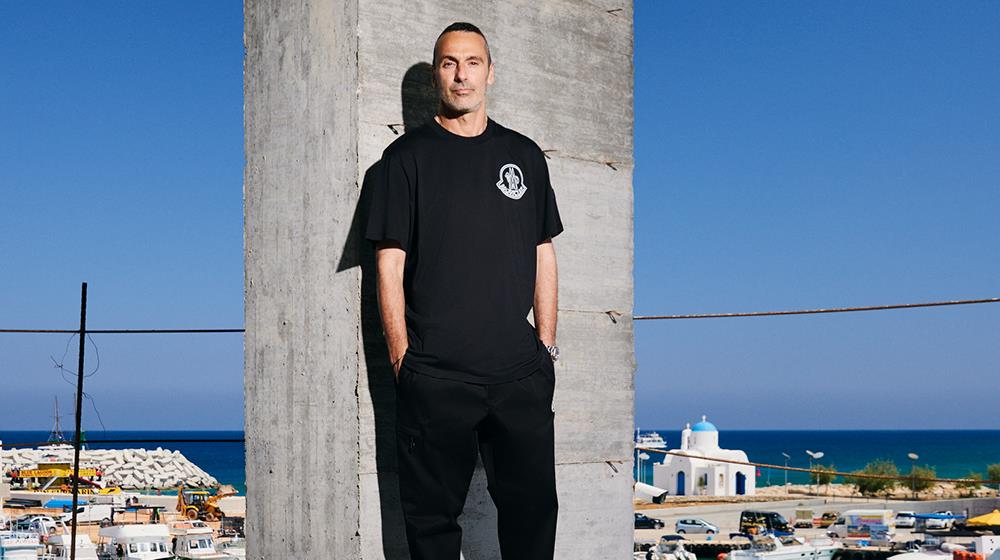"The future of the mid- to-high end property market lies in mixed-use developments, which have been shown to boost the local economy, create jobs and help social connectivity. They also offer facilities and amenities to their residents and examples of such developments operating successfully across the country include hotels and resorts, marina developments and golf courses," Anthoulis Kountouris, CEO of PMV Maritime Holdings suggests.
In a recent interview with GOLD magazine, Kountouris elaborates on his view of industry trends, examines the current challenges facing the local real estate market, notes the sector’s continuing resilience in the face of past and present difficulties, and shares his optimism for the future.
What is your outlook for the real estate market over the next 12-18 months? Which segments do you expect to experience significant growth?
Although Cyprus is a small place, each city has its own characteristics and a diverse real estate scene. Ever since the cancellation of the Cyprus Investment Programme, there is still a stable and steady demand for both commercial and residential properties in Paphos and Limassol, which has become a destination for professionals and their families. It has a lot to offer in terms of infrastructure and lifestyle, making it the first choice for highly paid professionals and investors. Larnaca is an upcoming market, which offers lower rates than Limassol and has attracted a new wave of investors looking for an alternative market within the city limits.
The Famagusta district attracts buyers seeking a summer and/or weekend residence, mainly from Nicosia. With two marinas and new infrastructure such as the coastal pathway, road network improvements and additional car parking spaces, the area is becoming an attractive destination for year-round tourism but also as a weekend retreat for locals. In Nicosia, demand remains steady, with its real estate product addressed to families and young professionals, now featuring large-scale developments and high-rise buildings in the city centre. Overall, I expect the market to remain healthy for the next year as long as supply and demand remain aligned.
The local real estate market has demonstrated considerable resilience but it is not without its problems. What are the biggest challenges the industry will face this year and beyond?
We have suffered great losses due to the increased costs of raw materials and transportation. Unfortunately, this has an impact on the quality of the products we receive as the market tends to seek alternative, cost-efficient solutions. The construction industry lacks professional and technical staff, which has a negative impact on both the quality and the delivery of property developments. Geopolitical uncertainty has always been around but we have learned to move forward without breaks and disruptions. Cyprus survived and recovered from the 1974 invasion and occupation and remains focused and hard-working. The island has attracted investors from neighbouring countries looking for a safe place for their families and businesses alike. I believe that Cyprus will remain a safe and secure place, thanks to the multicultural identity of so many stakeholders.
Compared to other Mediterranean destinations, how competitive is Cyprus in attracting international clients and institutional investors? What are the country’s key advantages and where do you see vulnerabilities?
Cyprus is a preferred destination and a haven for international clients and institutional investors. Even after the 2013 bail-in, which shook the credibility of the country, very few of them left. As an EU member state since 2004, with a lot to offer in terms of infrastructure, facilities and weather, Cyprus is a paradise for citizens from Central and Northern Europe as regards our quality of life. Simply by talking to someone who has moved here from another country, we can easily appreciate the standard of living in Cyprus and realise how fortunate we are.
The island’s high-end property market is increasingly attracting the attention of institutional investors, private equity funds and family offices. To what extent is the influx of institutional capital reshaping the real estate landscape?
The inflow of institutional capital is important for the island, although every action activates a reaction. Such capital contributes to the growth of the economy, hence the low level of unemployment, but at the same time it widens the gap between the social classes. The middle class has always been the main driver of the economy but first home purchase has now become hard for young couples. However, we expect the Government to find drastic solutions to the problem and follow the example of other European countries, such as the Netherlands which has introduced rent controls for mid-range homes in certain areas. The high-end property market targets a different segment and does not affect first home buyers. The future of the mid- to-high end property market lies in mixed use developments, which have been shown to boost the local economy, create jobs and help social connectivity. They also offer facilities and amenities to their residents and examples of such developments operating successfully across the country include hotels and resorts, marina developments and golf courses.
It’s now a year since local government reforms were implemented. What has their impact been on the real estate industry and is there room for further improvement?
It’s important that the public and private sectors improve their relationship and work in association rather than in conflict. We often feel that we are viewed as ‘the enemy’ and encounter hostile behaviour from government officials. This is why many projects, including infrastructure ones, face delays and, in some cases, institutional investors have faced drawbacks and had second thoughts about investing their capital. The economy will flourish when the two sectors manage to co-exist and cooperate in harmony. Local government reform initially brought some confusion but the situation now seems to be clearing. Eventually, the reforms should lead to local solutions and the creation of personnel dedicated to the specific topic of property development.
To what extent are government policies shaping development trends in the real estate sector?
Cyprus’ tax residency and non-domicile rules have been a huge benefit to the real estate sector, both for commercial and residential properties. The programme is healthy and has proven to be an asset; we should therefore respect and protect it. Regarding fast-track permit issuance, this applies to small developments and individual housing and has proven positive even in this short period of implementation. Green subsidies and build-to-rent programmes are picking up, providing additional incentives to investors and contributing mainly to the supply of mid-priced properties, enabling buyers to purchase or rent more affordable properties.
(Photo by TASPHO)
This interview first appeared in the May edition of GOLD magazine. Click here to view it.









